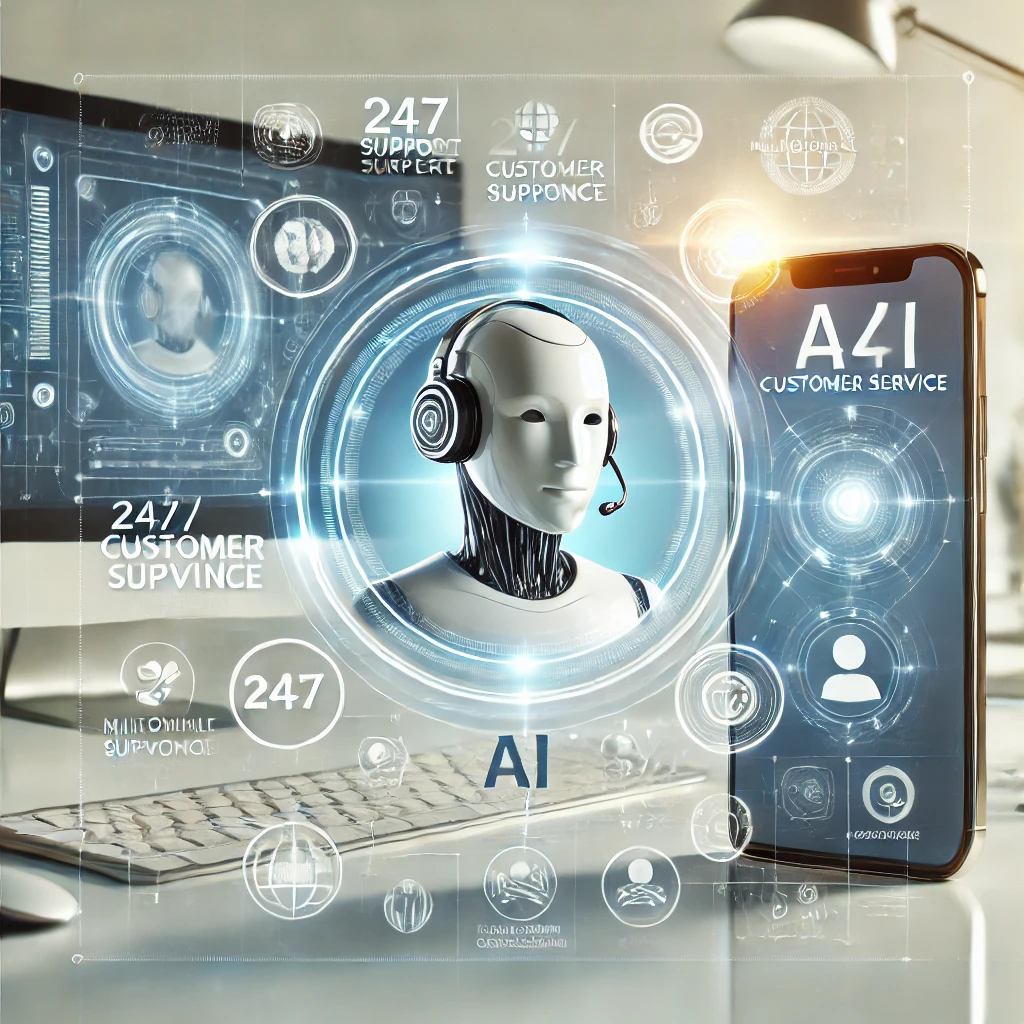AI Agents: Insights and Innovations in 2024
Published on November 15, 2024
🤖 Get AI Summary of this Post:

As we navigate through 2024, AI agents have emerged as pivotal tools in enterprise operations, seamlessly integrating into workflows to enhance productivity and customer engagement. From automating routine processes to providing sophisticated data insights, AI agents are redefining how businesses operate and interact with their clientele.
Understanding AI Agents: Beyond the Basics
At their core, AI agents leverage advanced language models to manage and direct application workflows. Similar to the varying autonomy levels in autonomous vehicles, AI agents possess a spectrum of capabilities that determine their level of independence and functionality within business processes. This versatility allows organizations to tailor AI agents to their specific needs, whether it's for simple task automation or complex decision-making support.
Adoption Trends: A Divided Yet Determined Market
The adoption of AI agents in 2024 presents a mixed landscape. Approximately 51% of surveyed professionals have already integrated AI agents into their production environments. Mid-sized companies, particularly those with 100 to 2000 employees, lead the charge with a 63% adoption rate. This trend underscores the growing confidence in AI agents' ability to deliver tangible benefits across various operational facets.
Future Plans and Continued Interest
Looking ahead, a substantial 78% of respondents are actively planning to deploy AI agents in the near future. This indicates a robust and sustained interest in AI technologies, despite the challenges associated with full-scale implementation. Companies are not only sticking to basic applications but are also exploring more sophisticated frameworks that emphasize multi-agent collaboration and enhanced autonomy.
Industry-Wide Momentum
AI agent adoption is not confined to the tech sector alone. An impressive 90% of respondents from non-tech industries are either utilizing or planning to implement AI agents, closely matching the 89% from tech companies. This widespread interest highlights the universal applicability of AI agents in enhancing operational efficiency and customer interactions across diverse sectors.
Top Use Cases: Enhancing Efficiency and Innovation
AI agents are being deployed for a variety of applications that span both routine and innovative tasks. The most prevalent use cases include:
- Research and Summarization (58%): AI agents efficiently handle data-intensive tasks such as literature reviews and research analysis, distilling vast amounts of information into actionable insights.
- Personal Productivity (53.5%): By managing scheduling, organization, and other administrative tasks, AI agents free up valuable time for employees to focus on strategic and creative endeavors.
- Customer Service (45.8%): AI agents enhance customer support by managing inquiries, troubleshooting issues, and accelerating response times, thereby improving overall customer satisfaction.
These use cases demonstrate the dual role of AI agents in boosting individual productivity and enhancing organizational efficiency.
Ensuring Reliability: The Importance of Oversight
With the increasing reliance on AI agents, maintaining control and oversight is crucial. Companies prioritize tools for tracing and observability to monitor agent performance and behavior. Approximately 39.8% of organizations employ offline evaluations, while 32.5% use online evaluations to ensure real-time performance reliability. Additionally, human oversight remains a key component, with many companies integrating manual checks to maintain high standards of accuracy and appropriateness in agent responses.
Permissions and Safeguards: Balancing Autonomy and Control
Most companies adopt a cautious approach to granting permissions to AI agents. The majority limit agents to read-only access or require human approval for critical actions like writing or deleting data. Larger enterprises, particularly those with over 2000 employees, tend to enforce stricter controls, emphasizing read-only permissions and robust guardrails to mitigate risks. In contrast, smaller companies focus more on tracing and understanding agent behavior, prioritizing rapid deployment and iterative improvement.
Challenges in Deployment: Navigating Quality and Expertise
Despite the enthusiasm surrounding AI agents, several challenges impede their widespread adoption. The foremost concern is maintaining high performance quality, with 45.8% of small companies highlighting it as a primary limitation. Ensuring that AI agents provide accurate and contextually relevant responses is paramount, especially in environments where errors can have significant repercussions.
Additionally, knowledge and time constraints pose significant hurdles. Many organizations struggle with the technical expertise required to implement and optimize AI agents effectively. The time investment needed for development, testing, and continuous improvement further complicates the deployment process, making it essential for companies to invest in training and streamlined workflows.
Success Stories: Pioneering AI Agent Applications
Several AI agent applications have garnered attention for their innovative approaches and impactful results. Notable examples include:
- Cursor: An AI-powered code editor that assists developers in writing, debugging, and parsing code through intelligent autocompletes and contextual support.
- Replit: Accelerates the software development lifecycle by setting up environments, configurations, and enabling the rapid deployment of fully functional applications.
- Perplexity: An AI-driven answer engine capable of handling complex queries by integrating web search capabilities and sourcing information effectively.
These applications illustrate the practical benefits of AI agents in real-world scenarios, showcasing their ability to solve complex problems and enhance productivity in various domains.
Emerging Trends and Future Directions
As organizations continue to integrate AI agents, several emerging themes are shaping the future of this technology:
- Advanced Task Management: AI agents are becoming more adept at managing multistep tasks, enabling deeper reasoning and better context management to handle complex workflows.
- Repetitive Task Automation: Continued focus on automating administrative and repetitive tasks allows employees to engage in more strategic and creative activities.
- Enhanced Collaboration: Improved task routing and multi-agent collaboration ensure that the right agent addresses the right problem at the right time, optimizing workflow efficiency.
- Human-Like Reasoning: AI agents are increasingly capable of tracing their decisions, reviewing past actions, and revising strategies based on new information, making them more reliable and adaptable.
- Open Source Innovations: The growing interest in open-source AI agents fosters collective intelligence and accelerates the development of innovative solutions.
- Next-Generation Models: Anticipation for more powerful AI models drives expectations for agents that can handle even more complex tasks with greater autonomy and efficiency.
These trends highlight the dynamic evolution of AI agents, as they become more sophisticated and integral to enterprise operations.
Strategic Integration: Mergers and Acquisitions
To stay competitive, many organizations are pursuing mergers and acquisitions to bolster their AI capabilities. By acquiring innovative technologies and integrating them into their existing frameworks, companies can address immediate operational needs while maintaining agility in a rapidly changing market landscape. This strategic approach ensures that businesses can leverage the latest advancements in AI agent technology to sustain their leadership and drive continuous improvement.
Building a Future with AI Agents
The integration of AI agents into enterprise operations signifies a transformative shift towards intelligent automation. These agents are no longer limited to simple task automation but are evolving into sophisticated tools capable of managing complex workflows and enhancing decision-making processes. As AI agents become more reliable and controllable, businesses will unlock new levels of efficiency and innovation, paving the way for a future where intelligent automation is a cornerstone of operational excellence.
References: State of AI Agents 2024



